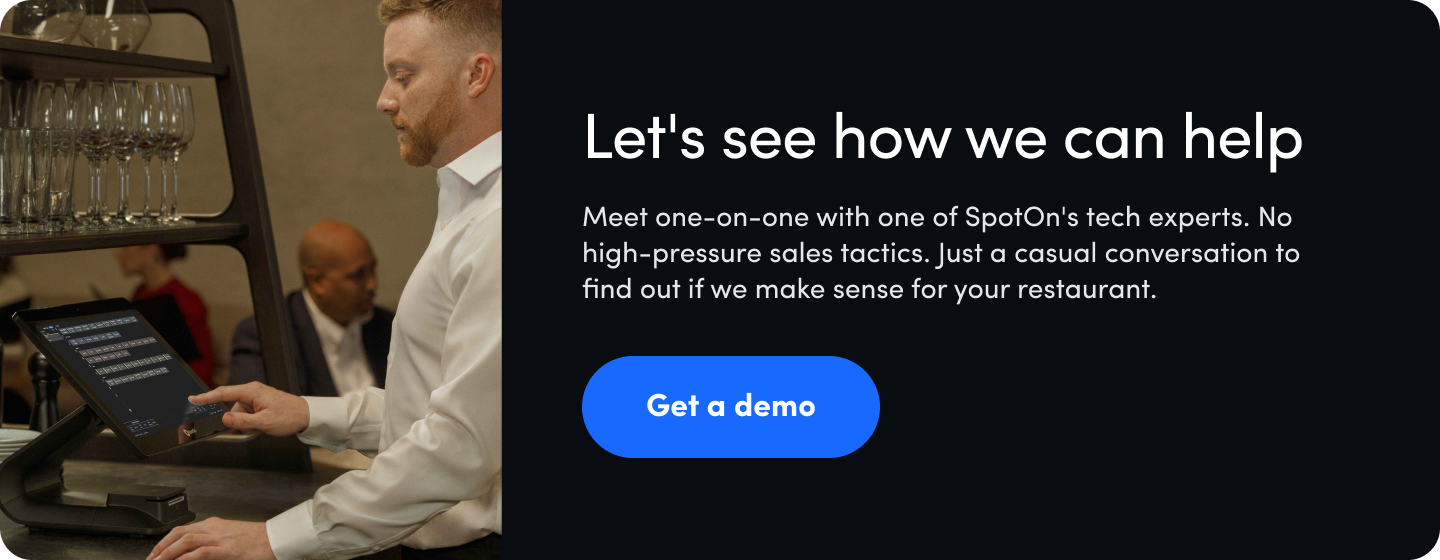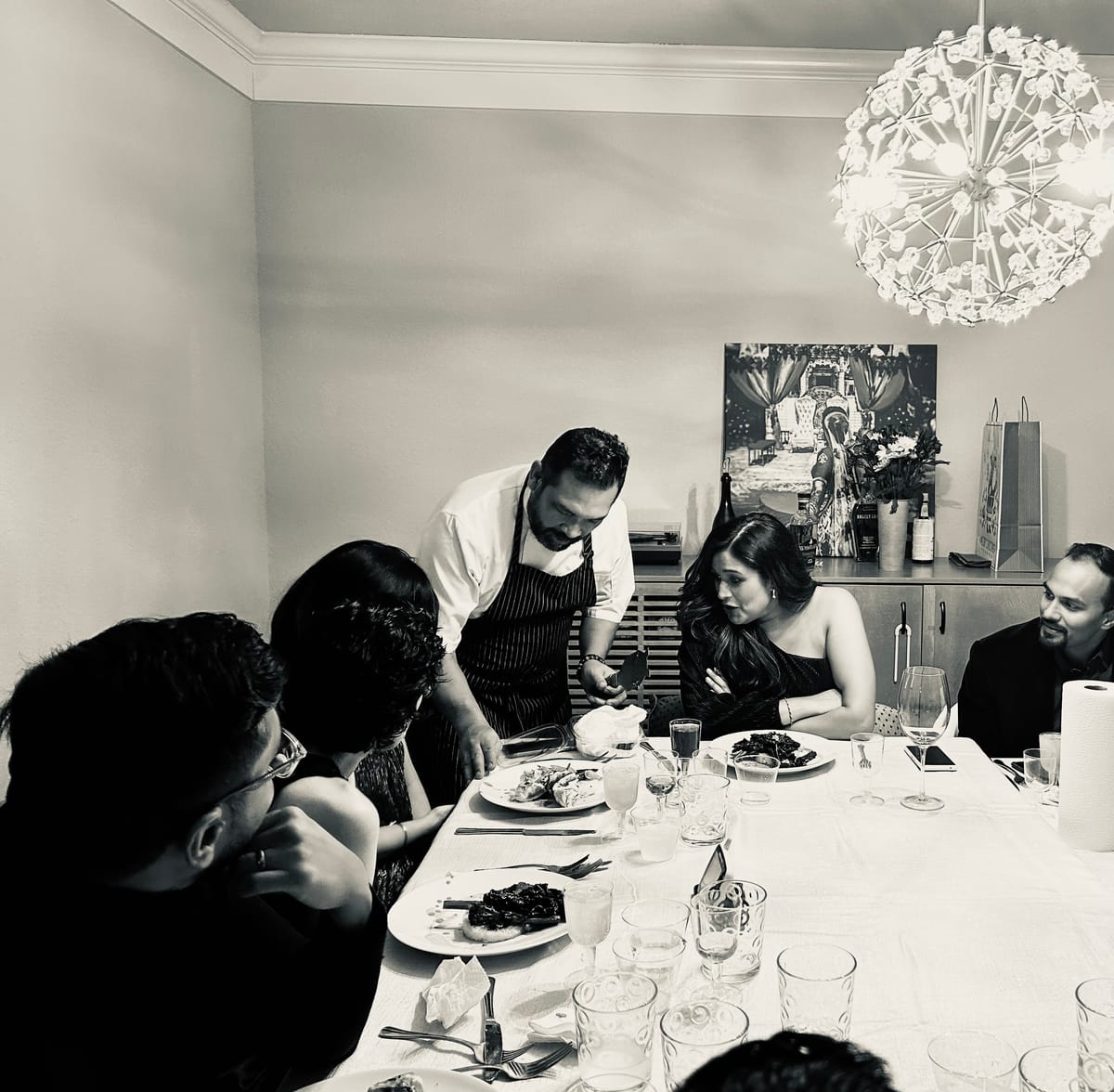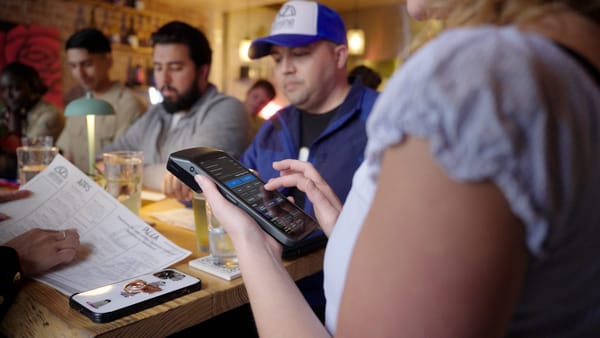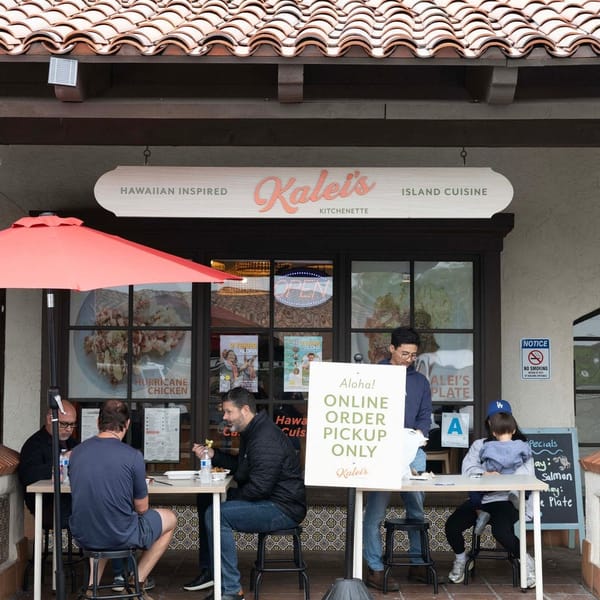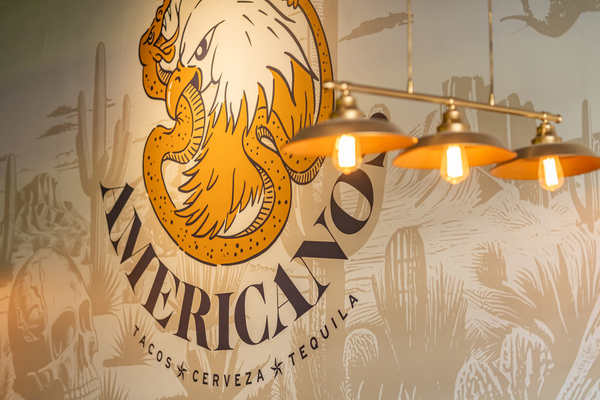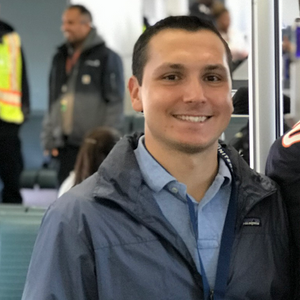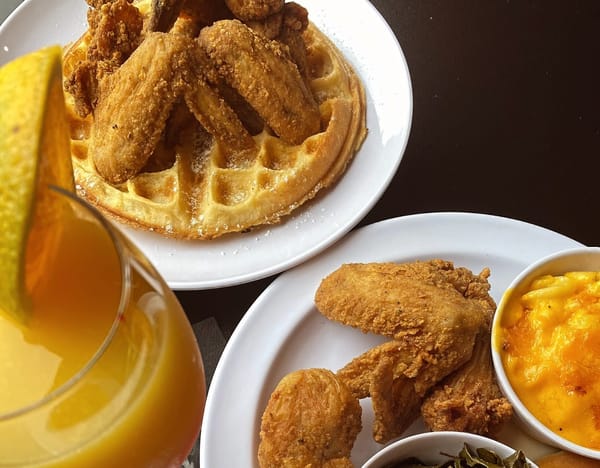Haz clic aquí para leer esta historia en español.
Approximately 13% of Mexicans live abroad. The United States is home to 97% of these emigrants. While you might associate the state of Wisconsin more closely with cheese curds than queso fundido, to chef, owner, and Mexico City native Ramses Alvarez, it’s a land of opportunity. Amid corn mazes and breweries, Alvarez found a sandbox for his fusion cooking style and a community of like-minded operators committed to a thriving restaurant industry.
“One of the great things of the United States of America, of Wisconsin, is the people. They were so grateful, so incredible. Along with the opportunity, they coached me every single day to help me succeed.”
Alvarez’s food roots run deep. He grew up immersed in food culture, shadowing his godfather, an executive chef at Polanco’s Hacienda de los Morales. In Mexico City, food was at every celebration, constant during the good and bad times. Alvarez made a long-term plan to work as a hotel chef overseas. First, that meant culinary school.
He staged for a French chef in Chicago, where he learned about bouillabaisse and confit, connecting the dots on French cuisine’s influence on post-colonial Mexico. "We have tortas in Mexico because the French brought the baguettes. Our subway system is influenced by the Paris Metro,” says Alvarez. He started picking up more European and Asian cuisines, noting the intersections.

After honing his skills in Chicago, Ramses went north to Milwaukee. While he still frequented Chicago’s Chinatown, in Milwaukee, he found a city with a more complex food culture than it gets credit for. For Alvarez, he saw the home of the modern gastropub, a manifestation of the city’s German and Polish roots. And when he started doing private dinners during the pandemic, he found diners with an appetite for experimentation and fusion that rivaled his own.
Alvarez’s culinary creativity eventually took the form of Dia Bom, a food hall stand with popular dishes like short rib tacos and ube churro bao buns. He saw the importance of restaurant marketing when his colorful, unexpected dishes took off on social media. But he lacked the independence of his own brick-and-mortar, so when he got the opportunity to take over a pizza restaurant in Milwaukee’s buzzy Third Ward neighborhood, he took it.
The restaurant was still full of dust and in the process of renovation when a SpotOn Hospitality Specialist came in and asked a question that resonated with Alvarez. "One of the things our rep said right away was, 'How can I help you grow?'" says Alvarez. That customer service, combined with a restaurant point-of-sale that integrates with their existing tech, was a winning combination for Alvarez and Brisa Do Mar.
Brisa Do Mar casts a wide net. Alvarez didn’t feel tethered to the Neapolitan pizza oven commandeering the corner spot, but he gravitated towards Mediterranean food, which epitomizes the melting pot theory of cooking. It’s Spanish, Italian, Greek, French, and North African. Alvarez doesn’t want to confine himself to one type of cuisine.
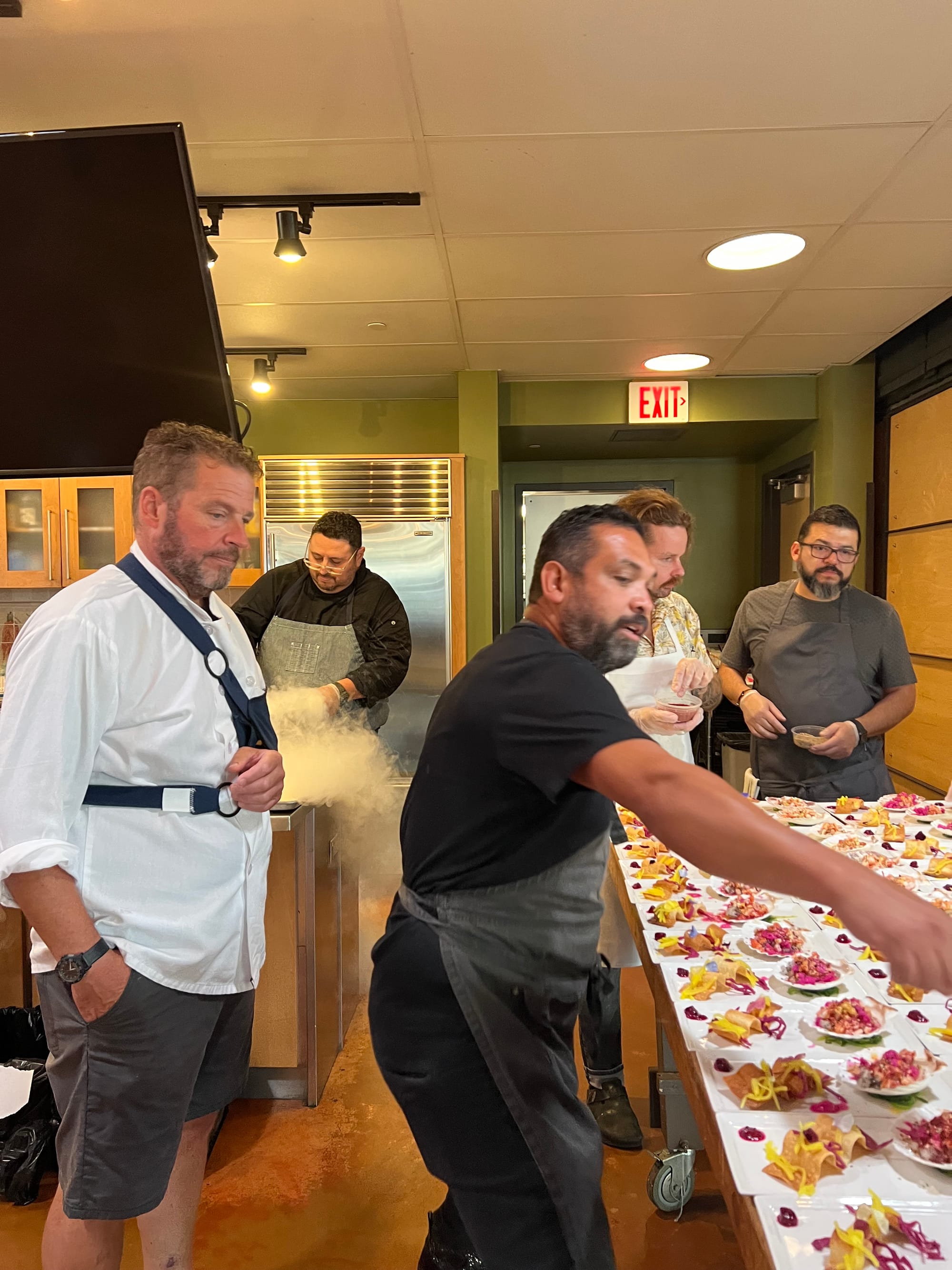
He runs his restaurant with the openness, passion, and vibrant energy that brought him to Milwaukee. But Alvarez stays true to the community that taught him to love cooking in the first place. He’s part of Chefs Latinos Wisconsin, a group dedicated to uplifting Latinos in the restaurant industry. Where they might lack hours in the day, they make up for in enthusiasm and team spirit. “There are about six of us, and we are still growing,” says Alvarez. “We do community and charity. We try to help each other as much as we can.”
Later this year, Alvarez is headed back to Mexico City for the first time in over five years. He’s excited to reconnect with the flavors of home, and, for him, that starts with breakfast. “I wake up, get my coffee, my little pastry—so Mexican,” he jokes. “I was born and raised with that. People ask, ‘How can you eat so many carbs and sweets in the morning?’ That’s part of who we are.” It's clear that Ramses cares about more than just food. He values the culture and memories it brings, and he keeps these memories with him always.
